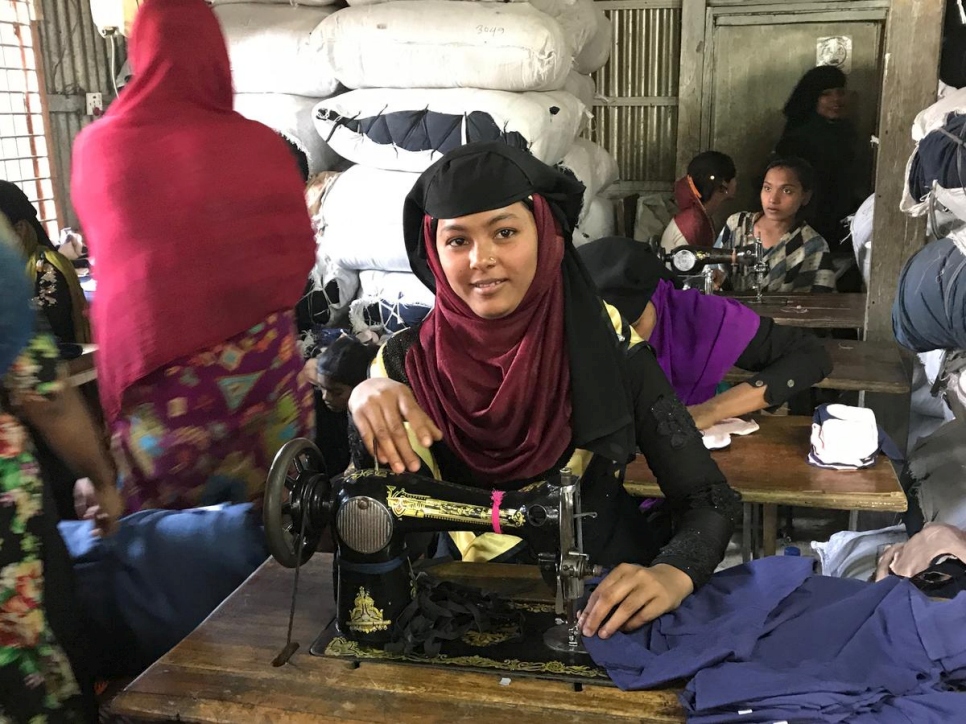Formal talks on global refugee compact conclude with strong and broad agreement
Efforts to strengthen the response to refugees passed an important milestone this week.

Nasima Aktar, 19, has saved enough money to buy her own sewing maching and is now taking private orders. © UNHCR/Caroline Gluck
GENEVA – The international community’s efforts to strengthen the response to refugees passed an important milestone this week, with the wrapping up of formal talks in Geneva and broad agreement on a final draft global compact on refugees.
The sixth and final formal consultation on the global compact on refugees on Wednesday concluded an 18-month process of meetings with UN member states and other stakeholders – including civil society, refugees, international organizations and academics.
“The vast majority of the 24 million refugees in the world today are hosted in low and middle-income countries with scant resources and their own development challenges. A fairer, more robust system to share responsibility has never been more urgent,” said UN High Commissioner for Refugees Filippo Grandi.
The compact will strengthen the international response to large refugee situations.
Grandi will put forward the final version of the compact in his annual report to the UN General Assembly, which will consider it for adoption later in 2018. In a statement, he welcomed the conclusion of formal consultations.
Once adopted, the compact will strengthen the international response to large refugee situations, broadening the base of support for those forced to flee their homes and the communities hosting them.
It sets out concrete actions for governments and others to meet its four key objectives: ease pressures on host countries; enhance refugee self-reliance; expand refugees’ access to solutions in third countries; and support conditions in countries of origin for refugees to return in safety and dignity.
The final draft compact includes a series of systems to maintain momentum and rally the support needed. These include a Global Refugee Forum every four years, situation specific ‘Support Platforms’, and a three-year strategy to expand access of refugees to solutions in third countries.
It has been really heartening to have such constructive engagement.
While not legally binding, the compact will represent the ambition of the international community to transform the response to refugee situations globally, with a blueprint for action to ensure refugees and host communities can count on robust support.
“Throughout this massive yet inspiring undertaking to forge international agreement on a stronger response to refugee situations, it has been really heartening to have such constructive engagement of governments and others as we have tried to build a global consensus,” said UNHCR’s Assistant High Commissioner for Refugees, Volker Türk, whose closing remarks to Wednesday’s meeting provide a summary of the final formal consultation and details of the next steps.
UNHCR was charged by the UN General Assembly to propose a global compact on refugees, based on the Comprehensive Refugee Response Framework set out in the historic New York Declaration for Refugees and Migrants, of September 2016. That framework is already being applied in 14 countries.
